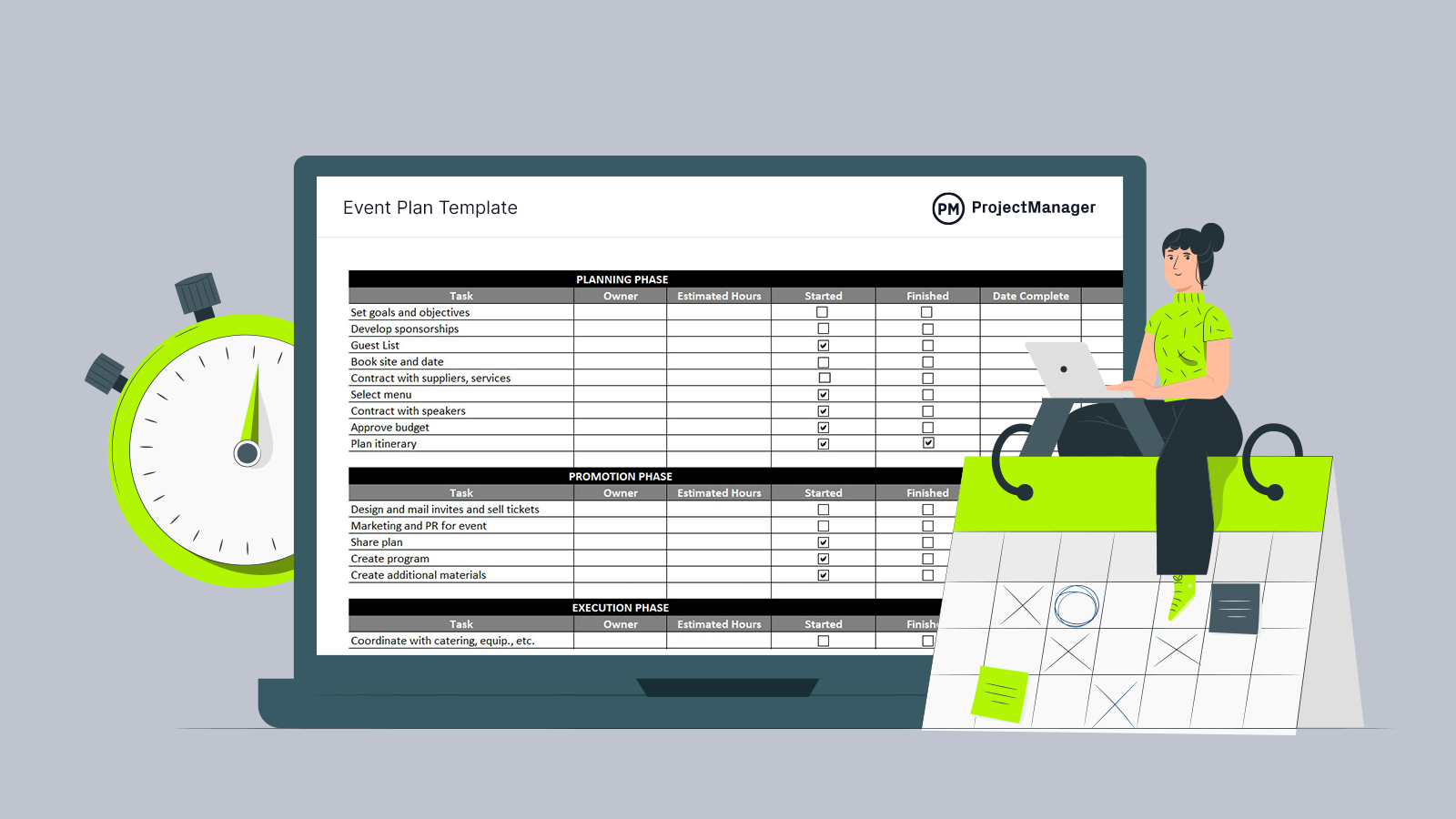
ProjectManager
by Jennifer Bridges | Apr 28, 2023Need to know how to plan an event? If you’re planning a big event like a conference, we can help you successfully create, structure and lay out your event plan. This blog will cover everything you need to consider when planning an event, including event planning steps, tips and an easy-to-use event checklist.
Event planning is the process of putting on and managing a variety of events, from something as small as a meeting to as big as a convention and everything in between. When event planning you’ll be taking into account every aspect of that event, whether it’s a birthday party or a networking event.
That means you’ll be estimating budgets, creating timelines to schedule the event, reserving the site and any panels or speakers involved, getting necessary permits, food, transportation and more. If the event has a theme, you’ll develop that, too. Plus, you’ll be in charge of securing the needed resources to make the event a success.

Use this free Event Plan Template for Excel to manage your projects better.
Download Excel File
An event plan defines how an event will be executed. It addresses all the components of an event such as the start and end dates, budget, venue, marketing, attendees and more. The scope and complexity of the event plan vary depending on the size of the event, but the fundamental challenges remain the same.
Organizing all those disparate parts, especially for larger events, requires powerful project management software. ProjectManager is award-winning project management software that lets you plan, manage and track your event to ensure it’s a success.
Our powerful Gantt charts help you list all your tasks and the associated resources and costs, assign them to your team and set milestones to track your progress. The whole plan is visible on a project timeline and can be saved by setting a baseline. Now you can track the planned progress against your actual progress to make sure you’re on schedule. Get started with ProjectManager today for free.
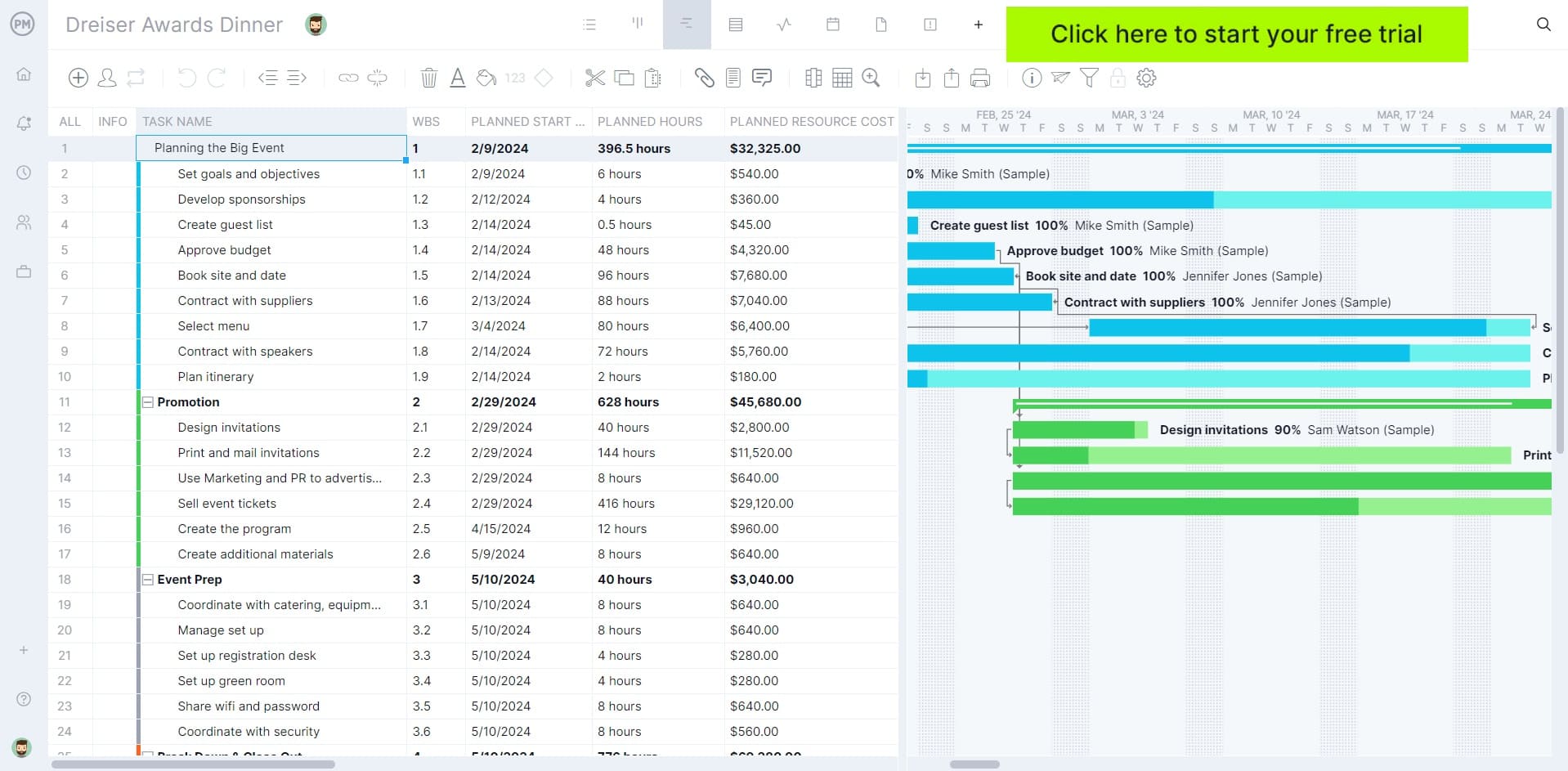
Most of us have some experience planning an event, be it at home, work or in our community. For this article, let’s focus on large events.
A conference is a common type of large event, so for our event management purposes, let’s talk about a TEDx conference that we were involved in to illustrate how to plan an event. This example is a good scenario to explain the structure and challenges of planning a big event, along with the benefits of planning an event with project management software.
Let’s break down the other components of setting up an event. They’re summarized below:
This free event plan template for Excel is a great tool to start assembling the information you need to create an event plan. It can be customized to add your event details.
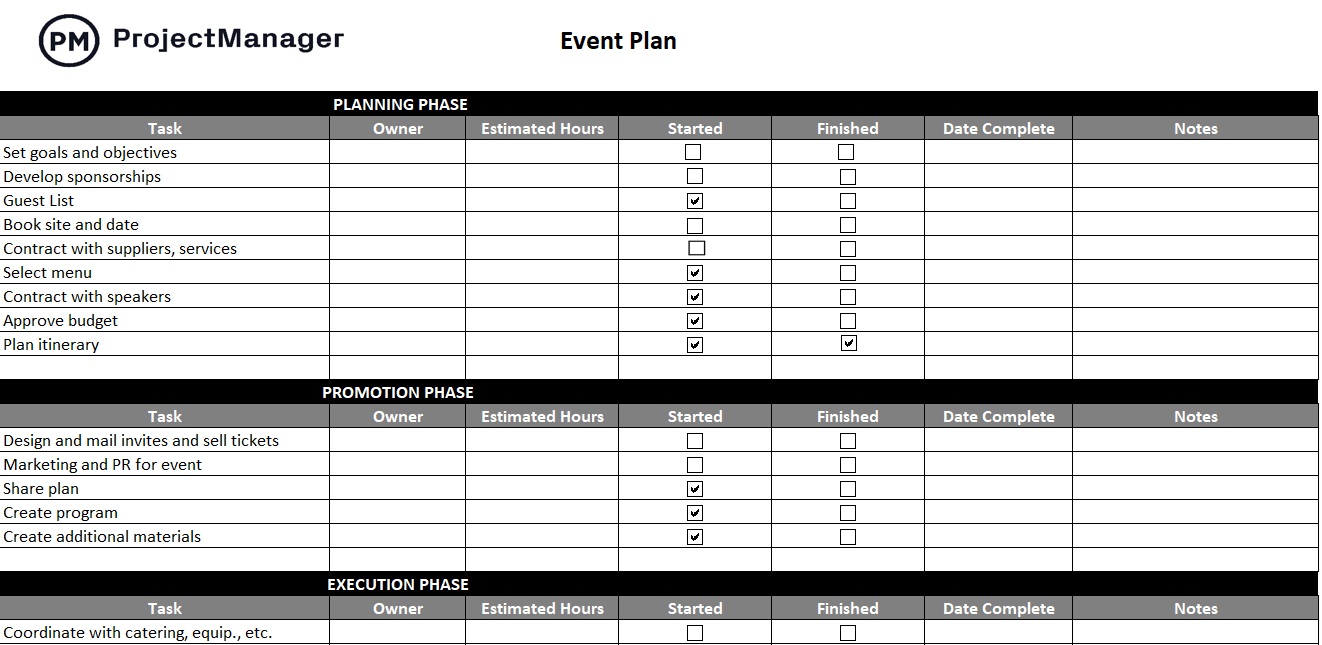
We covered a lot on event planning, so let’s break down those tips into concrete steps. These event planning steps will guide you toward success. Let’s continue with our conference example.
When you break down the scope of your event plan into manageable steps, the process seems a lot less daunting. However, there are a few more things to keep in mind when making your event plan.
As you might expect, there are many different roles that work together to bring an event to life. It’s easy to get confused. Are you an event manager or an event planner? Is there any difference between the two? Let’s take a look at some of the more common event-planning roles and define them.
The event manager is often mistaken for the event planner, but they are two distinct roles. Most simply, the event manager is responsible for event management activities, which involve coordinating and implementing the event. They take care of setting up the event, including its design, and make sure the vision of the event planner is realized.
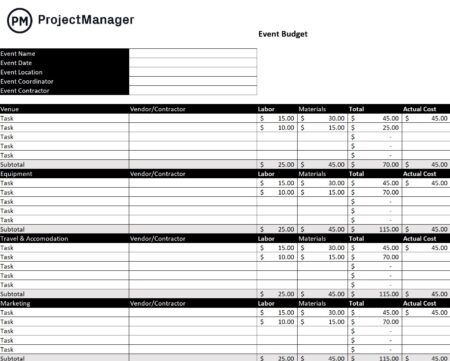
An event planner organizes, coordinates and executes the event. They’re in charge of coming up with the idea, overseeing the setup and breakdown of the event. They’ll select the venue, create the budget and ensure everything is taken care of. What sets them apart is they design the strategy for the event to the smallest detail.
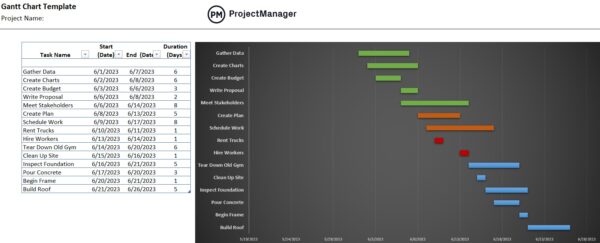
The event producer fleshes out the strategic plan of the event planner. They are the one who takes the idea and turns it into a living event. They will take charge of the technical aspects of the event, such as audio/visual, stage design, etc. They work with the event planner to schedule the event, but the event producer uses their skills and expertise in producing events to deliver the event that’ll impress both attendees and the client.

Unfortunately, there are always going to be variables out of your control that’ll affect the event planning process, such as the weather, delivery delays, technical difficulties and other potential mix-ups. As stated earlier, you can’t change the date of your event, so you’ll want to be as prepared as possible for any risks or issues that may pop up on the day of your event.
A post-event review or a post-mortem as they’re often called, is very valuable. By looking back at the past event and seeing what worked and what didn’t work, you can better plan your next event. There are always lessons to be learned and applying them to the next project will avoid previous mistakes and increase your chances of a better outcome.
Having an event planning template is a great way to make sure you’re not missing any important pieces of the larger event. It’ll help you organize your tasks and resources, costs and more. Use our free event plan template to get started on the right foot.
A template is fine, but limited. You have to manually update everything and it’s not very collaborative. Event planning tools, such as Gantt charts, kanban boards, task lists and calendars, help you plan and implement the event plan. They also allow you to track the work to make sure it’s following the plan, which leads to a more successful event.
As important as your plan is, there can be issues with it. There might be acts of god, such as weather, which negatively impact the event. Whatever the cause, you’ll need a backup. That’s why developing a plan B is so critical to the success of the event. You might never have to use it, but in case you do, you’re prepared.
Another tip is to have a checklist made up. That way you can collect all the things you have to do and why you’re doing it in one place. Using a checklist for event planning can be done in conjunction with project planning tools. The more safeguards, the better. Also, there are few things more satisfying than crossing something off your list.
There’s a lot to manage when planning an event, so it’s important to have a list of everything you need to include in your event management plan. The following is a general event planning checklist to help you get started. The more questions you ask, the better your event checklist. Feel free to add your own unique responsibilities and tasks.
Pro tip: That’s a lot to coordinate and plan, which is why there’s a need for project management software that has the right features for event management. It provides a common portal, where you can track costs and tasks with automated alerts. It also offers both a communication and a collaborative platform that reduces the need for unnecessary emails. Software collects all your files in one place and makes team reporting simpler by adding efficiencies and reducing stress.
ProjectManager is online software that’s suited for event planning. We have event project management tools to keep all the parts of your events, from managing vendors to promotions, organized. Our planning software helps you keep track of all the elements that make up your event plan.
Our multiple project views mean that event planners and managers can use project calendars, Gantt charts and there are task lists and kanban boards for teams. While reports can keep stakeholders informed, they might want to have access to the project. Share the calendar view with your stakeholders, which allows them to see start and end dates for all the tasks as well as milestones. This manages their expectations.
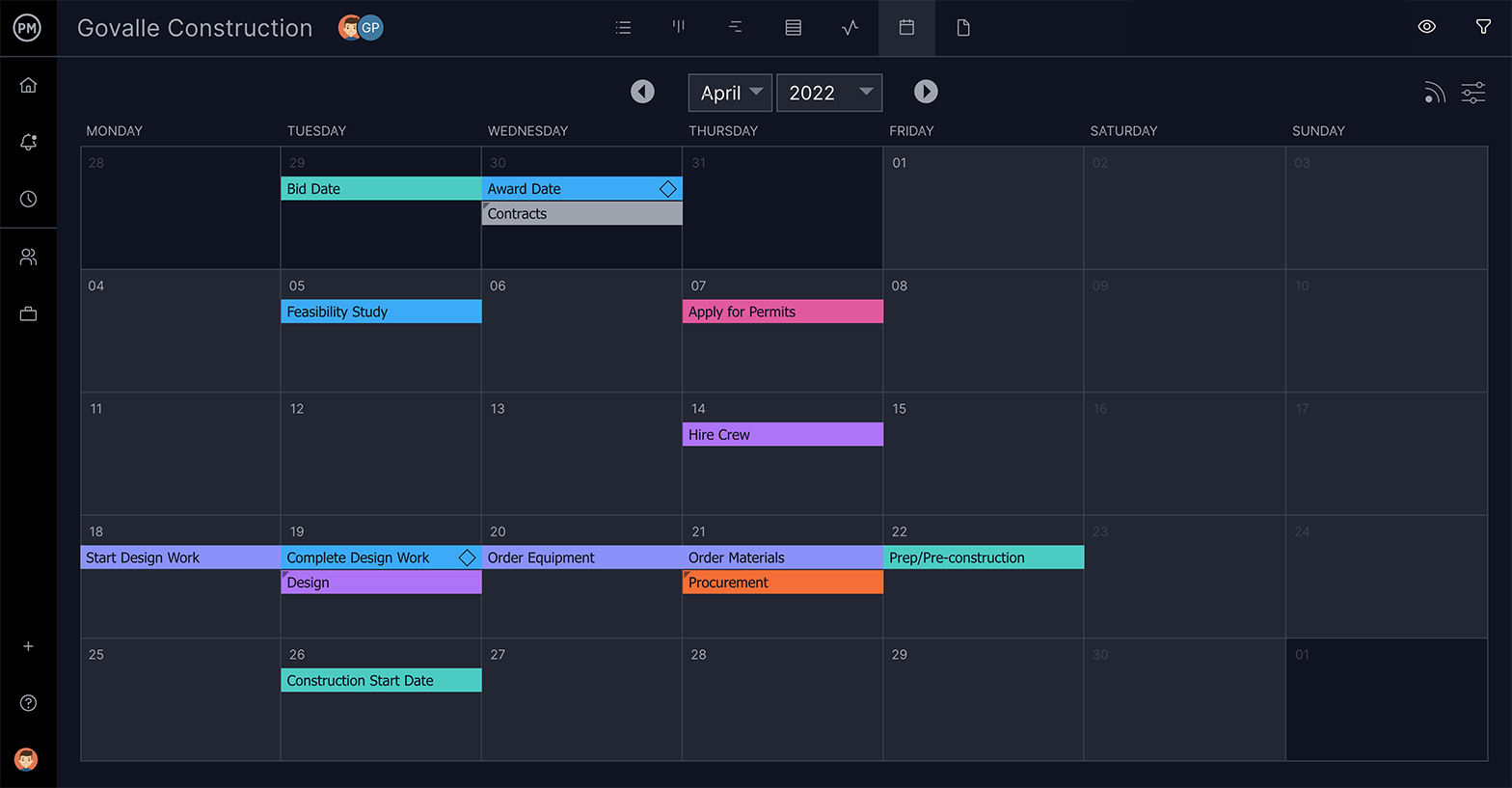
Use ProjectManager’s kanban board to manage the daily activities that need to be executed to plan, schedule and track your event plan. Move tasks from column to column as you collaborate on work with your team, and it’s easy to spot bottlenecks and get everything over the line in time for the event.
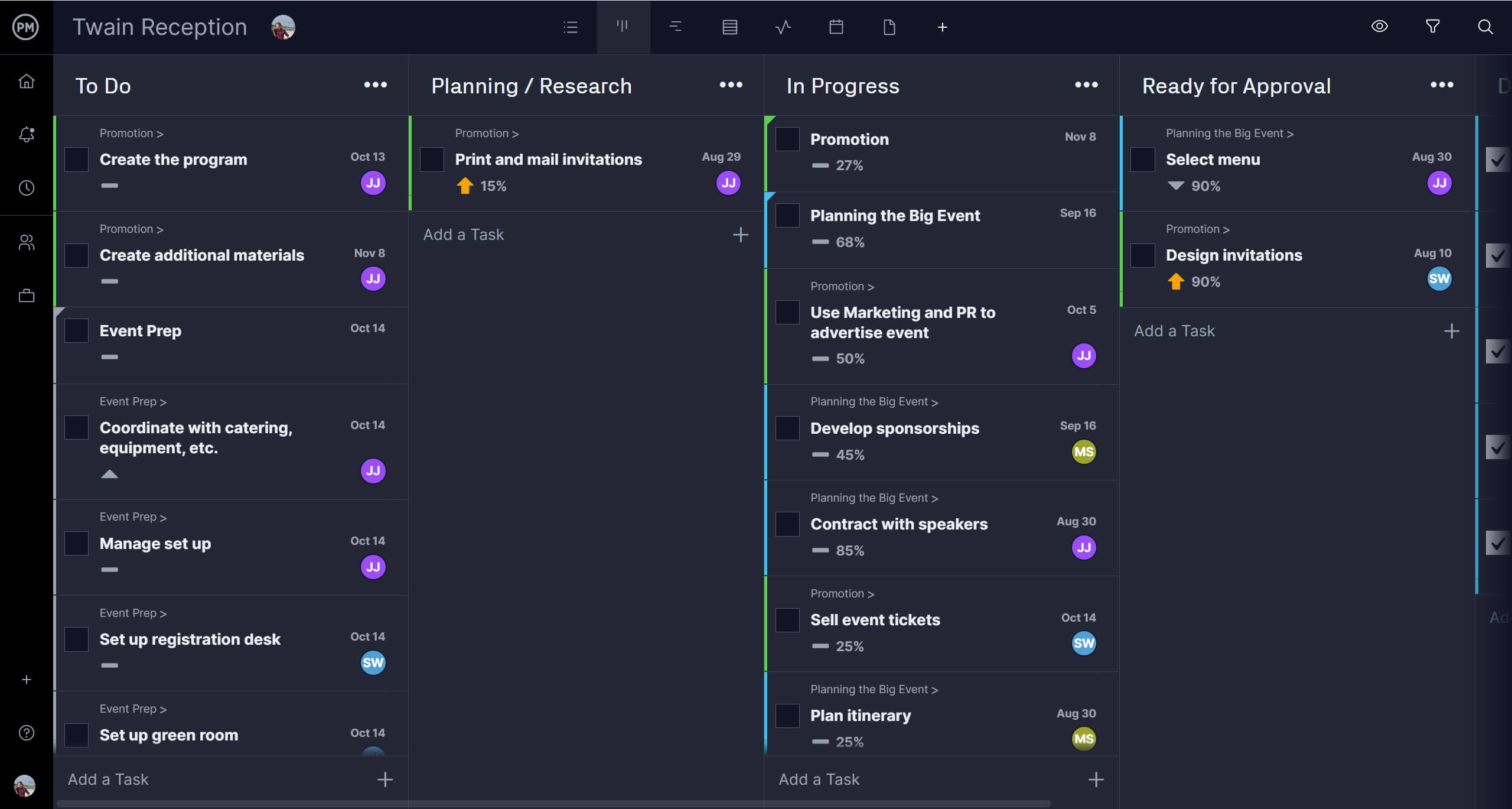
Plus, timesheets make invoicing easy for all your events. They can be submitted and approved with a keystroke. Our software also offers a variety of views, from a list to a calendar and even a kanban board that helps you visualize the workflow to keep on task.
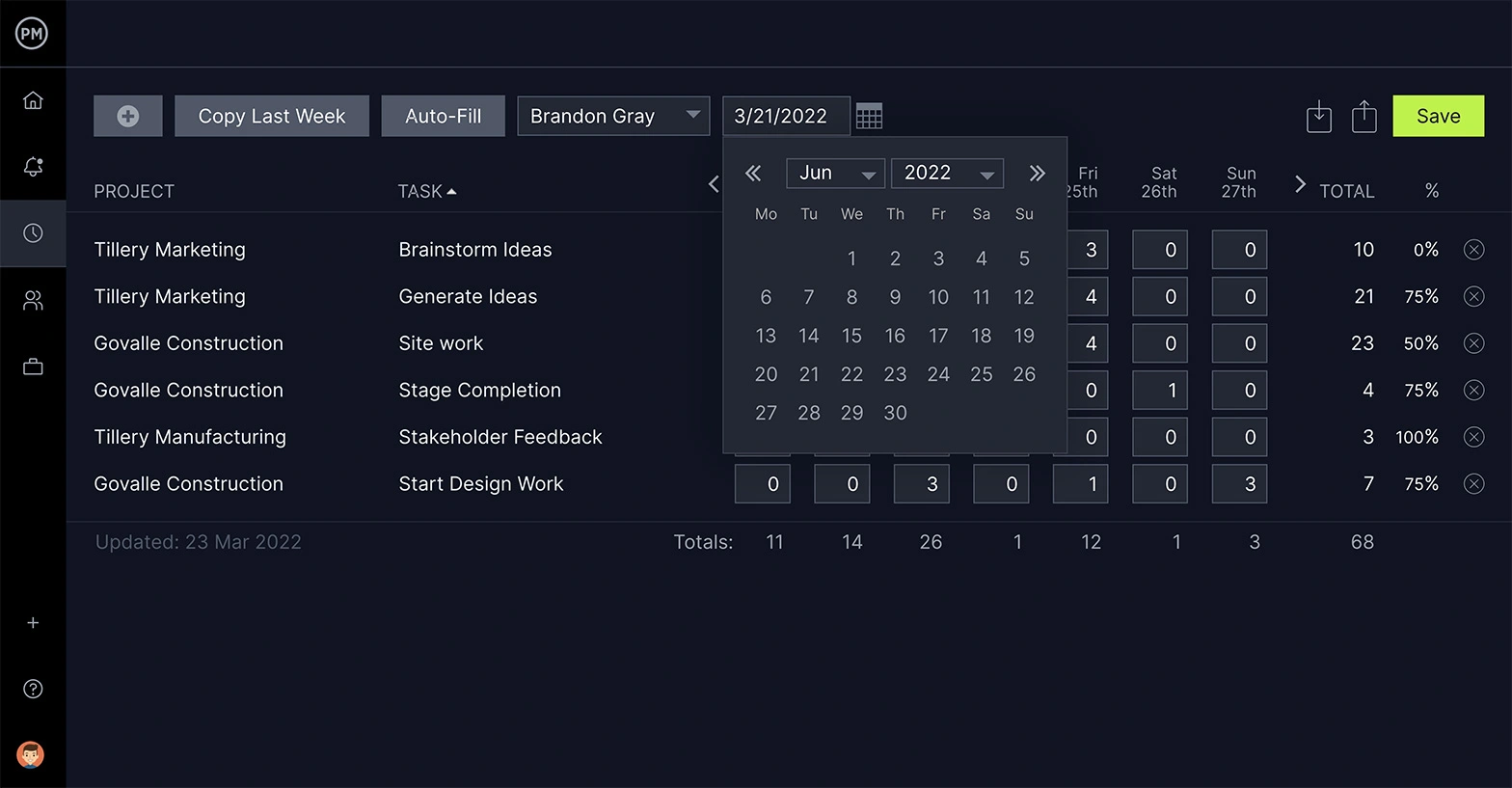
Event planning can be complex. There’s a lot of balls to keep in the air. If the above is too much to digest immediately, you could start with our event plan template and watch one of our planning experts. Jennifer Bridges, PMP, has years of experience and uses it to teach you the fundamentals of event planning in this short video.
ProjectManager is award-winning project management software that helps you plan and monitor your event details. From powerful planning tools to real-time reports and dashboards that capture all of your event details, you can use our software to stay on schedule and stick to your planned budget. Try our software today with a free 30-day trial.